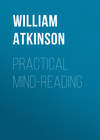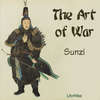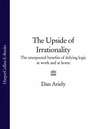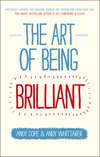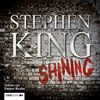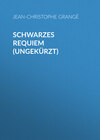Kitabı oku: «'Farewell, Nikola'», sayfa 4
"Because I could not help thinking of it this evening, when his voice was so pleasant and his manner so kind. When I picture him going back to that house to-night, to that dreadful room, to sleep alone in that great building, it fairly makes me shudder. Good-night, old fellow. You have treated me royally to-day; I could scarcely have had more sensations compressed into my waking hours if I'd been a king."
CHAPTER IV
After our excursion through Venice with Nikola by night, an interval of a week elapsed before we saw anything of him. During that time matters, so far as our party was concerned, progressed with the smoothness of a well-regulated clock. In my own mind I had not the shadow of a doubt that Glenbarth was head over ears in love with Gertrude Trevor. He followed her about wherever she went; seemed never to tire of paying her attention, and whenever we were alone together, endeavoured to inveigle me into a discussion of her merits. That she had faults nothing would convince him.
Whether she reciprocated his good-feeling was a matter which, to my mind, there existed a considerable amount of doubt. Women are proverbially more secretive in these affairs than men, and if Miss Trevor entertained a warmer feeling than friendship for the young Duke, she certainly managed to conceal it admirably. More than once, I believe, my wife endeavoured to sound her upon the subject. She had to confess herself beaten, however. Miss Trevor liked the Duke of Glenbarth very much; she was quite agreed that he had not an atom of conceit in his constitution; he gave himself no airs; moreover, she was prepared to meet my wife half-way, and to say that she thought it a pity he did not marry. No, she had never heard that there was an American millionaire girl, extremely beautiful, and accomplished beyond the average, who was pining to throw her millions and herself at his feet! "And then," added my wife, in a tone that seemed to suggest that she considered it my fault that the matter had not been brought to a successful conclusion long since, "what do you think she said? 'Why on earth doesn't he marry this American? So many men of title do now-a-days.' What do you think of that? I can tell you, Dick, I could have shaken her!"
"My dear little woman," I said in reply, "will nothing convince you that you are playing with fire? If you are not very careful you will burn your fingers. Gertrude is almost as clever as you are. She sees that you are trying to pump her, and very naturally declines to be pumped. You would feel as she does were you in her position."
"I do not know why you should say I am trying to pump her," she answered with considerable dignity. "I consider it a very uncalled-for expression."
"Well, my dear," I answered, "if you are going to attempt to improve your position by splitting straws, then I must stop."
The episode I have just described had taken place after we had retired for the night, and at a time when I am far from being at my best. My wife, on the other hand, as I have repeatedly noticed, is invariably wide-awake at that hour. Moreover she has an established belief that it would be an impossibility for her to obtain any rest until she has cleared up all matters of mystery that may have attracted her attention during the day. I generally fall asleep before she is half-way through, and for this reason I am told that I lack interest in what most nearly concerns our welfare.
"One would at least imagine that you could remain awake to discuss events of so much importance to us and to those about us," I have known her say. "I have observed that you can talk about horses, hunting, and shooting, with your bachelor friends until two or three o'clock in the morning without falling asleep, but when your wife is anxious to ask your opinion about something that does not concern your amusements, then you must needs go to sleep."
"My dear," I replied, "when all is said and done we are but human. You know as well as I do, that if a man were to come to me when I had settled down for the night, and were to tell me that he knew where to lay his hand upon the finest horse in England, and where he could put me on to ten coveys of partridges within a couple of hundred yards of my own front door, that he could even tell me the winner of the Derby, I should answer him as I am now answering you."
"And your reply would be?"
I am afraid the pains I had been at to illustrate my own argument must have proved too much for me, for I was informed in the morning that I had talked a vast amount of nonsense about seeing Nikola concerning a new pigeon-trap, and had then resigned myself to the arms of Morpheus. If there should be any husbands whose experience have run on similar lines, I should be glad to hear from them. But to return to my story.
One evening, exactly a week after Glenbarth's arrival in Venice, I was dressing for dinner when a letter was brought to me. Much to my surprise I found it was from Nikola, and in it he inquired whether it would be possible for me to spare the time to come and see him that evening. It appeared that he was anxious to discuss a certain important matter with me. I noticed, however, that he did not mention what that matter was. In a postscript he asked me, as a favour to himself, to come alone.
Having read the letter I stood for a few moments with it in my hand, wondering what I should do. I was not altogether anxious to go out that evening; on the other hand I had a strange craving to see Nikola once more. The suggestion that he desired to consult me upon a matter of importance flattered my vanity, particularly as it was of such a nature that he did not desire the presence of a third person. "Yes," I thought, "after all I will go." Accordingly I wrote a note to him saying that, if the hour would suit him, I hoped to be with him at half-past nine o'clock. Then I continued my dressing and presently went down to dinner.
During the progress of the meal I mentioned the fact that I had received the letter in question, and asked my friends if they would excuse me if I went round in the course of the evening to find out what it was that Nikola had to say to me. Perhaps by virtue of my early training, perhaps by natural instinct, I am a keen observer of trifles. On this occasion I noticed that from the moment I mentioned the fact of my having received a letter from Nikola, Miss Trevor ate scarcely any more dinner. Upon my mentioning his name she had looked at me with a startled expression upon her face. She said nothing, however, but I observed that her left hand, which she had a trick of keeping below the table as much as possible, was for some moments busily engaged in picking pieces from the roll beside her plate. For some reason she had suddenly grown nervous again, but why she should have done so passes my comprehension. When the ladies had retired, and we were sitting together over our wine, Glenbarth returned to the subject of my visit that evening.
"By Jove, my dear fellow," he said, "I don't envy you your excursion to that house. Don't you feel a bit nervous about it yourself?"
I shook my head.
"Why should I?" I asked. "If the truth must be told I am a good deal more afraid of Nikola than I am of his house. I don't fancy on the present occasion, however, I have any reason to dread either."
"Well," said the Duke with a laugh, "if you are not home by breakfast-time to-morrow morning I shall bring the police round, and look down that trap-door. You'll take a revolver with you of course?"
"I shall do nothing of the kind," I replied. "I am quite able to take care of myself without having recourse to fire-arms."
Nevertheless, when I went up to my room to change my coat, prior to leaving the house, I took a small revolver from my dressing-case and weighed it in my hand. "Shall I take it or shall I not?" was the question I asked myself. Eventually I shook my head and replaced it in its hiding-place. Then, switching off the electric light, I made for the door, only to return, re-open the dressing-case, and take out the revolver. Without further argument I slipped it into the pocket of my coat and then left the room.
A quarter of an hour later my gondolier had turned into the Rio del Consiglio, and was approaching the Palace Revecce. The house was in deep shadow, and looked very dark and lonesome. The gondolier seemed to be of the same opinion, for he was anxious to set me down, to collect his fare, and to get away again as soon as possible. Standing in the porch I rang the great bell which Nikola had pointed out to me, and which we had not observed on the morning of our first visit. It clanged and echoed somewhere in the rearmost portion of the house, intensifying the loneliness of the situation and adding a new element of mystery to that abominable dwelling. In spite of my boast to Glenbarth I was not altogether at my ease. It was one thing to pretend that I had no objection to the place when I was seated in a well-lighted room, with a glass of port at my hand, and a stalwart friend opposite; it was quite another, however, to be standing in the dark at that ancient portal, with the black water of the canal at my feet and the anticipation of that sombre room ahead. Then I heard the sound of footsteps crossing the courtyard, and a moment later Nikola himself stood before me and invited me to enter. A solitary lamp had been placed upon the coping of the wall, and its fitful light illuminated the courtyard, throwing long shadows across the pavement and making it look even drearier and more unwholesome than when I had last seen it. After we had shaken hands we made our way in silence up the great staircase, our steps echoing along the stone corridors with startling reverberations. How thankful I was at last to reach the warm, well-lit room, despite the story Nikola had told us about it, I must leave you to imagine.
"Please sit down," said Nikola, pushing a chair forward for my occupation. "It is exceedingly kind of you to have complied with my request. I trust Lady Hatteras and Miss Trevor are well?"
"Thank you, they are both well," I replied. "They both begged to be remembered to you."
Nikola bowed his thanks, and then, when he had placed a box of excellent cigars at my elbow, prepared and lighted a cigarette for himself. All this time I was occupying myself wondering why he had asked me to come to him that evening, and what the upshot of the interview was to be. Knowing him as I did, I was aware that his actions were never motiveless. Everything he did was to be accounted for by some very good reason. After he had tendered his thanks to me for coming to see him, he was silent for some minutes, for so long indeed that I began to wonder whether he had forgotten my presence. In order to attract his attention I commented upon the fact that we had not seen him for more than a week.
"I have been away," he answered, with what was plainly an attempt to pull himself together. "Business of a most important nature called me to the south of Italy, to Naples in fact, and I only returned this morning."
Once more he was silent. Then leaning towards me and speaking with even greater impressiveness than he had yet done, he continued —
"Hatteras, I am going to ask you a question, and then, with your permission, I should like to tell you a story."
Not knowing what else to do I simply bowed. I was more than ever convinced that Nikola was going to make use of me.
"Have you ever wondered," he began, still looking me straight in the face, and speaking with great earnestness, "what it was first made me the man I am?"
I replied to the effect that I had often wondered, but naturally had never been able to come to a satisfactory conclusion.
"Some day you shall know the history of my life," he answered. "But not just yet. There is much to be done before then. And now I am going to give you the story I promised you. You will see why I have told it to you when I have finished."
He rose from his chair and began to pace the room. I had never seen Nikola so agitated before. When he turned and faced me again his eyes shone like diamonds, while his body quivered with suppressed excitement.
"Hatteras," he went on, when he had somewhat mastered his emotion, "I doubt very much if ever in this world's history there has been a man who has suffered more than I have done. As I said just now, the whole story I cannot tell you at present. Some day it will come in its proper place and you will know everything. In the meantime – "
He paused for a few moments and then continued abruptly —
"The story concerns a woman, a native of this city; the last of an impoverished, but ancient family. She married a man many years her senior, whom she did not love. When they had been married just over four years her husband died, leaving her with one child to fight the battles of the world alone. The boy was nearly three years old, a sturdy, clever little urchin, who, up to that time, had never known the meaning of the word trouble. Then there came to Venice a man, a Spaniard, as handsome as a serpent, and as cruel. After a while he made the woman believe that he loved her. She returned his affection, and in due time they were married. A month later he was appointed Governor of one of the Spanish islands off the American coast – a post he had long been eager to obtain. When he departed to take up his position it was arranged that, as soon as all was prepared, the woman and her child should follow him. They did so, and at length reached the island and took up their abode, not at the palace, as the woman had expected, but in the native city. For the Governor feared, or pretended to fear, that, as his marriage had not been made public at first, it might compromise his position. The woman, however, who loved him, was content, for her one thought was to promote his happiness. At first the man made believe to be overjoyed at having her with him once again, then, little by little, he showed that he was tired of her. Another woman had attracted his fancy, and he had transferred his affections to her. The other heard of it. Her southern blood was roused, for though she had been poor, she was, as I have said, the descendant of one of the oldest Venetian families. As his wife she endeavoured to defend herself, then came the crushing blow, delivered with all the brutality of a savage nature.
"'You are not my wife,' he said. 'I had already a wife living when I married you.'
"She left him without another word and went away to hide her shame. Six months later the fever took her and she died. Thus the boy was left, at five years old, without a friend or protector in the world. Happily, however, a humble couple took compassion on him, and, after a time, determined to bring him up as their own. The old man was a great scholar, and had devoted all his life to the exhaustive study of the occult sciences. To educate the boy, when he grew old enough to understand, was his one delight. He was never weary of teaching him, nor did the boy ever tire of learning. It was a mutual labour of love. Seven years later saw both the lad's benefactors at rest in the little churchyard beneath the palms, and the boy himself homeless once more. But he was not destined to remain so for very long; the priest, who had buried his adopted parents, spoke to the Governor, little dreaming what he was doing, of the boy's pitiable condition. It was as if the devil had prompted him, for the Spaniard was anxious to find a playfellow for his son, a lad two years the other's junior. It struck him that the waif would fill the position admirably. He was accordingly deported to the palace to enter upon the most miserable period of his life. His likeness to his mother was unmistakable, and when he noticed it, the Governor, who had learned the secret, hated him for it, as only those hate who are conscious of their wrong-doing. From that moment his cruelty knew no bounds. The boy was powerless to defend himself. All that he could do was to loathe his oppressor with all the intensity of his fiery nature, and to pray that the day might come when he should be able to repay. To his own son the Governor was passionately attached. In his eyes the latter could do no wrong. For any of his misdeeds it was the stranger who bore the punishment. On the least excuse he was stripped and beaten like a slave. The Governor's son, knowing his power, and the other's inordinate sensitiveness, derived his chief pleasure in inventing new cruelties for him. To describe all that followed would be impossible. When nothing else would rouse him, it was easy to bring him to an ungovernable pitch of fury by insulting his mother's name, with whose history the servants had, by this time, made their master's son acquainted. Once, driven into a paroxysm of fury by the other's insults, the lad picked up a knife and rushed at his tormentor with the intention of stabbing him. His attempt, however, failed, and the boy, foaming at the mouth, was carried before the Governor. I will spare you a description of the punishment that was meted out for his offence. Let it suffice that there are times even now, when the mere thought of it is sufficient to bring – but there – why should I continue in this strain? All that I am telling you happened many years ago, but the memory remains clear and distinct, while the desire for vengeance is as keen as if it had happened but yesterday. What is more, the end is coming, as surely as the lad once hoped and prophesied it would."
Nikola paused for a moment and sank into his chair. I had never seen him so affected. His face was deathly pale, while his eyes blazed like living coals.
"What became of the boy at last?" I inquired, knowing all the while that he had been speaking of himself.
"He escaped from the island, and went out into the world. The Governor is dead; he has gone to meet the woman, or women, he has so cruelly wronged. His son has climbed the ladder of Fame, but he has never lost, as his record shows, the cruel heart he possessed as a boy. Do you remember the story of the Revolution in the Republic of Equinata?"
I shook my head.
"The Republics of South America indulge so constantly in their little amusements that it is difficult for an outsider to remember every particular one," I answered.
"Well, let me tell you about it. When the Republic of Equinata suffered from its first Revolution, this man was its President. But for his tyranny and injustice it would not have taken place. He it was who, finding that the Rebellion was spreading, captured a certain town, and bade the eldest son of each of the influential families wait upon him at his headquarters on the morning following its capitulation. His excuse was that he desired them as hostages for their parents' good behaviour. As it was, however, to wreak his vengeance on the city, which had opposed him, instead of siding with him, he placed them against a wall and shot them down by the half-dozen. But he was not destined to succeed. Gradually he was driven back upon his Capital, his troops deserting day by day. Then, one night he boarded a ship that was waiting for him in the harbour, and from that moment Equinata saw him no more. It was not until some days afterwards that it was discovered that he had despatched vast sums of money, which he had misappropriated, out of the country, ahead of him. Where he is now hiding I am the only man who knows. I have tracked him to his lair, and I am waiting – waiting – waiting – for the moment to arrive when the innocent blood that has so long cried to Heaven will be avenged. Let him look to himself when that day arrives. For as there is a God above us, he will be punished as man was never punished before."
The expression upon his face as he said this was little short of devilish; the ghastly pallor of his skin, the dark, glittering eyes, and his jet-black hair made up a picture that will never fade from my memory.
"God help his enemy if they should meet," I said to myself. Then his mood suddenly changed, and he was once more the quiet, suave Nikola to whom I had become accustomed. Every sign of passion had vanished from his face. A transformation more complete could scarcely have been imagined.
"My dear fellow," he said, without a trace of emotion in his voice, "you must really forgive me for having bored you with my long story. I cannot think what made me do so, unless it is that I have been brooding over it all day, and felt the need of a confidant. You will make an allowance for me, will you not?"
"Most willingly," I answered. "If the story you have told me concerns yourself, you have my most heartfelt sympathy. You have suffered indeed."
He stopped for a moment in his restless walk up and down the room, and eyed me carefully as if he were trying to read my thoughts.
"Suffered?" he said at last, and then paused. "Yes, I have suffered – but others have suffered more. But do not let us talk of it. I was foolish to have touched upon it, for I know by experience the effect it produces upon me."
As he spoke he crossed to the window, which he threw open. It was a glorious night, and the sound of women's voices singing reached us from the Grand Canal. On the other side of the watery highway the houses looked strangely mysterious in the weird light. At that moment I felt more drawn towards Nikola than I had ever done before. The man's loneliness, his sufferings, had a note of singular pathos for me. I forgot the injuries he had done me, and before I knew what I was doing, I had placed my hand upon his shoulder.
"Nikola," I said, "if I were to try I could not make you understand how truly sorry I am for you. The life you lead is so unlike that of any other man. You see only the worst side of Human Nature. Why not leave this terrible gloom? Give up these experiments upon which you are always engaged, and live only in the pure air of the commonplace every-day world. Your very surroundings – this house, for instance – are not like those of other men. Believe me, there are other things worth living for besides the Science which binds you in its chains. If you could learn to love a good woman – "
"My dear Hatteras," he put in, more softly than I had ever heard him speak, "woman's love is not for me. As you say, I am lonely in the world, God knows how lonely, yet lonely I must be content to remain." Then leaning his hands upon the window-sill, he looked out upon the silent night, and I heard him mutter to himself, "Yes, lonely to the End." After that he closed the window abruptly, and turning to me, asked how long we contemplated remaining in Venice.
"I cannot say yet," I answered, "the change is doing my wife so much good that I am anxious to prolong our stay. At first we thought of going to the South of France, but that idea has been abandoned, and we may be here another month."
"A month," he said to himself, as if he were reflecting upon something; then he added somewhat inconsequently, "You should be able to see a great deal of Venice in a month."
"And how long will you be here?" I asked.
He shook his head.
"It is impossible to say," he answered. "I never know my own mind for two days together. I may be here another week, or I may be here a year. Somehow, I have a conviction, I cannot say why, that this will prove to be my last visit to Venice. I should be sorry never to see it again, yet what must be, must. Destiny will have its way, whatever we may say or do to the contrary."
At that moment there was the sound of a bell clanging in the courtyard below. At such an hour it had an awe-inspiring sound, and I know that I shuddered as I heard it.
"Who can it be?" said Nikola, turning towards the door. "This is somewhat late for calling hours. Will you excuse me if I go down and find out the meaning of it?"
"Do so, by all means," I answered. "I think I must be going also. It is getting late."
"No, no," he said, "stay a little longer. If it is as I suspect, I fancy I shall be able to show you something that may interest you. Endeavour to make yourself comfortable until I return. I shall not be away many minutes."
So saying, he left me, closing the door behind him. When I was alone, I lit a cigar and strolled to the window, which I opened. My worst enemy could not call me a coward, but I must confess that I derived no pleasure from being in that room alone. The memory of what lay under that oriental rug was vividly impressed upon my memory. In my mind I could smell the vaults below, and it would have required only a very small stretch of the imagination to have fancied I could hear the groans of the dying man proceeding from it. Then a feeling of curiosity came over me to see who Nikola's visitor was. By leaning well out of the window, I could look down on the great door below. At the foot of the steps a gondola was drawn up, but I was unable to see whether there was any one in it or not. Who was Nikola's mysterious caller, and what made him come at such an hour? Knowing the superstitious horror in which the house was held by the populace of Venice, I felt that whoever he was, he must have had an imperative reason for his visit. I was still turning the subject over in my mind, when the door opened and Nikola entered, followed by two men. One was tall and swarthy, wore a short black beard, and had a crafty expression upon his face. The other was about middle height, very broad, and was the possessor of a bullet-head covered with close-cropped hair. Both were of the lower class, and their nationality was unmistakable. Turning to me, Nikola said in English —
"It is as I expected. Now, if you care to study character, here is your opportunity. The taller man is a Police Agent, the other the chief of a notorious Secret Society. I should first explain that within the last two or three days I have been helping a young Italian of rather advanced views, not to put too fine a point upon it, to leave the country for America. This dog has dared to try to upset my plans. Immediately I heard of it I sent word to him, by means of our friend here, that he was to present himself here before twelve o'clock to-night without fail. From his action it would appear that he is more frightened of me than he is of the Secret Society. That is as it should be; for I intend to teach him a little lesson which will prevent him from interfering with my plans in the future. You were talking of my science just now, and advising me to abandon it. Could the life you offer me give me the power I possess now? Could the respectability of Clapham recompense me for the knowledge with which the East can furnish me?"
Then turning to the Police Agent he addressed him in Italian, speaking so fast that it was impossible for me to follow him. From what little I could make out, however, I gathered that he was rating him for daring to interfere with his concerns. When, at the end of three or four minutes, he paused and spoke more slowly, this was the gist of his speech —
"You know me and the power I control. You are aware that those who thwart me, or who interfere with me and my concerns, do so at their own risk. Since no harm has come of it, thanks to certain good friends, I will forgive on this occasion, but let it happen again and this is what your end will be."
As he spoke he took from his pocket a small glass bottle with a gold top, not unlike a vinaigrette, and emptied some of the white powder it contained into the palm of his hand. Turning down the lamp he dropped this into the chimney. A green flame shot up for a moment, which was succeeded by a cloud of perfumed smoke that filled the room so completely that for a moment it was impossible for us to see each other. Presently a picture shaped itself in the cloud and held my attention spell-bound. Little by little it developed until I was able to make out a room, or rather I should say a vault, in which upwards of a dozen men were seated at a long table. They were all masked, and without exception were clad in long monkish robes with cowls of black cloth. Presently a sign was made by the man at the head of the table, an individual with a venerable grey beard, and two more black figures entered, who led a man between them. Their prisoner was none other than the Police Agent whom Nikola had warned. He looked thinner, however, and was evidently much frightened by his position. Once more the man at the head of the table raised his hand, and there entered at the other side an old man, with white hair and a long beard of the same colour. Unlike the others he wore no cowl, nor was he masked. From his gestures I could see that he was addressing those seated at the table, and, as he pointed to the prisoner, a look of undying hatred spread over his face. Then the man at the head of the table rose, and though I could hear nothing of what he said, I gathered that he was addressing his brethren concerning the case. When he had finished, and each of the assembly had voted by holding up his hand, he turned to the prisoner. As he did so the scene vanished instantly and another took its place.
It was a small room that I looked upon now, furnished only with a bed, a table, and a chair. At the door was a man who had figured as a prisoner in the previous picture, but now sadly changed. He seemed to have shrunk to half his former size, his face was pinched by starvation, his eyes were sunken, but there was an even greater look of terror in them than had been there before. Opening the door of the room he listened, and then shut and locked it again. It was as if he were afraid to go out, and yet knew that if he remained where he was, he must perish of starvation. Gradually the room began to grow dark, and the terrified wretch paced restlessly up and down, listening at the door every now and then. Once more the picture vanished as its companion had done, and a third took its place. This proved to be a narrow street-scene by moonlight. On either side the houses towered up towards the sky, and since there was no one about, it was plain that the night was far advanced. Presently, creeping along in the shadow, on the left-hand side, searching among the refuse and garbage of the street for food, came the man I had seen afraid to leave his attic. Times out of number he looked swiftly behind him, as if he thought it possible that he might be followed. He was but little more than half-way up the street, and was stooping to pick up something, when two dark figures emerged from a passage on the left, and swiftly approached him. Before he had time to defend himself, they were upon him, and a moment later he was lying stretched out upon his back in the middle of the street, a dead man. The moon shone down full and clear upon his face, the memory of which makes me shudder even now. Then the picture faded away and the room was light once more. Instinctively I looked at the Police Agent. His usually swarthy face was deathly pale, and from the great beads of perspiration that stood upon his forehead, I gathered that he had seen the picture too.

